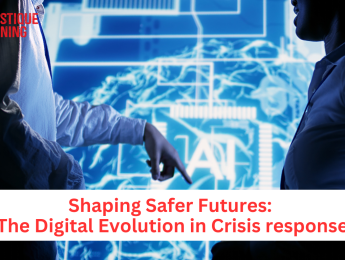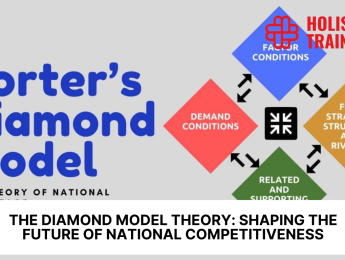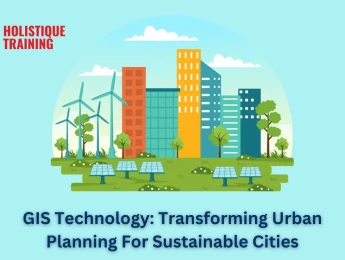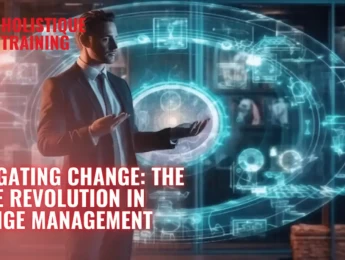- Table of Contents
- Introduction
- What Is an Event Management Protocol?
- Why Is Protocol Necessary in Event Management?
- Streamlined Operations
- Professionalism and Standardisation
- Risk Management
- Effective Communication
- Streamlined Operations
- Professionalism and Standardisation
- Risk Management
- Effective Communication
- Advanced Events Management and Protocol Techniques
- 1. Technology Integration
- 2. Data-Driven Decision Making
- 3. Stakeholder Collaboration
- 4. Crisis Management and Contingency Planning
- 5. Sustainable Event Practices
- The Psychology of Event Experience
- Cognitive Psychology
- Emotional Engagement
- Behavioural Economics
- Virtual and Hybrid Events
- Virtual Events
- Hybrid Events
- The Future of Event Management Protocol: AI and VR Integration
- AI-Powered Personalisation
- VR-Enhanced Immersion
- Conclusion
Introduction
Events have always been a powerful tool for bringing people together, creating memorable experiences, and achieving various objectives. Whether it's a corporate conference, a grand wedding, or a large-scale music festival, the success of any event depends on effective planning, coordination, and execution. This is where event management protocol plays a crucial role. In this comprehensive blog post, we will explore what event management protocol is, why it is necessary, and delve into advanced techniques that can elevate your events to new heights.
What Is an Event Management Protocol?
Event management protocol refers to a set of established guidelines, procedures, and customs that dictate how events are planned, organised, and executed. It provides a structured framework for event professionals to follow, ensuring consistency, professionalism, and smooth operations. Protocol covers many aspects, including event planning, logistics, communication, etiquette, and crisis management. By adhering to protocol, event organisers can maintain standards, meet client expectations, and create a seamless participant experience.
Why Is Protocol Necessary in Event Management?
Streamlined Operations
Protocol establishes a systematic approach to event management, ensuring that all tasks are completed efficiently and coordinated. It provides clear guidelines for various stakeholders, minimising confusion, and enabling seamless collaboration.
Role | Responsibilities |
Event Manager | Overall event planning and coordination |
Logistics Team | Transportation, setup, and teardown |
Marketing Team | Promotion, advertising, and social media management |
Guest Services | Attendee registration, information, and assistance |
Technical Crew | Audiovisual equipment setup and operation |
Security Team | Crowd control, safety, and emergency response |
Table 1: Roles and Responsibilities Matrix
Event organisers ensure that every aspect of the event is covered by a clearly defined roles and responsibilities matrix (Table 1). This prevents overlap and confusion among team members, leading to smoother operations.
Professionalism and Standardisation
Event management protocol includes dress code, behaviour, and communication guidelines to maintain professionalism and standardisation. For example, event staff might be required to wear uniforms, greet attendees with a smile, and use a specific tone of voice when addressing guests. These seemingly small details collectively contribute to the overall impression of the event.
Risk Management
Event organisers should always be prepared for the unexpected. This includes planning for weather-related issues, medical emergencies, and even security breaches. Event management protocol ensures that all team members know these plans and their roles during such situations.
Effective Communication
Clear communication is the cornerstone of successful event management. The protocol defines communication channels, reporting structures, and escalation procedures. For instance, if an issue arises at an event, there should be a clear chain of command to ensure it is addressed promptly.
Advanced Events Management and Protocol Techniques
Now that we've established the importance of event management protocol, let's explore some advanced techniques and technologies that can further enhance its effectiveness.
1. Technology Integration
Embracing advanced event management software and tools can significantly enhance protocol adherence and streamline operations. According to Social Tables, leveraging technology in events can increase attendance and productivity by 20 per cent and 27 per cent, respectively.
Event Registration and Management Software
Event registration and management software automates the registration process, making it easier for attendees to sign up for your event. It also simplifies attendee management, allowing organisers to track registrations, payments, and check-ins in real-time.
Mobile Event Apps
Mobile event apps provide attendees with a convenient way to access event information, schedules, and updates. These apps can also facilitate networking among attendees and provide interactive features like live polling and Q&A sessions.
Communication Platforms
Utilising communication platforms such as Slack or Microsoft Teams can help event teams collaborate more effectively. These tools allow instant messaging, file sharing, and video conferencing, making coordinating tasks and sharing important information easier.
2. Data-Driven Decision Making
Utilising data analytics and insights can inform event management decisions. Organisations can optimise various aspects of the event by collecting and analysing data on attendee preferences, feedback, and behaviour, from scheduling and content selection to resource allocation.
Attendee Behaviour Analysis
Analysing attendee behaviour can help event organisers understand which sessions or activities are most popular and adjust the schedule accordingly. For instance, if a particular speaker consistently draws a large crowd, organisers can allocate a larger venue for that session.
Personalised Experiences
Data-driven insights can be used to personalise the event experience for attendees. For example, if a participant has attended previous events, their preferences and interests can be used to recommend relevant sessions or activities.
Resource Allocation
By analysing data on resource usage, event organisers can make more informed decisions about where to allocate resources. This includes everything from food and beverage to staff and security.
3. Stakeholder Collaboration
Effective protocol implementation requires collaboration with various stakeholders, including vendors, sponsors, and venue management. Establishing strong partnerships and open lines of communication with these entities can facilitate smoother event execution.
Vendor Collaboration
Clear agreements regarding deliverables, timelines, and payment terms are essential when working with vendors. Maintaining a positive relationship with vendors can lead to better service and cost savings in the long run.
Sponsorship Activation
Sponsors play a significant role in many events, providing financial support and resources. Effective collaboration with sponsors ensures that their branding and messaging are integrated seamlessly into the event.
Venue Management
Working closely with the venue management team is crucial for logistical aspects such as setup, layout, and safety. Regular communication with the venue can help address any issues or changes that may arise during the planning process.
4. Crisis Management and Contingency Planning
Advanced events management protocol emphasises the importance of preparedness for unforeseen circumstances. Event organisers should conduct thorough risk assessments and develop comprehensive crisis management plans.
Risk Assessment
Organisers should identify potential risks before the event and assess their likelihood and impact. These include risks related to weather, security, health emergencies, and technical issues.
Communication Protocols
Effective communication is paramount during a crisis. Protocols should be in place to notify attendees, staff, and emergency services if necessary. This may involve using mass notification systems or designated communication channels.
Staff Training
All event staff should be trained on emergency response procedures and know their roles in various scenarios. Conducting regular drills and simulations helps ensure that teams can effectively manage crises and minimise disruptions.
5. Sustainable Event Practices
In today's environmentally conscious world, incorporating sustainability into events is crucial. Advanced protocol techniques encourage eco-friendly practices, such as waste reduction, recycling, and energy conservation.
Waste Reduction
Event organisers can reduce waste by minimising single-use plastics, providing recycling bins, and encouraging attendees to bring reusable water bottles and utensils.
Renewable Energy
Renewable energy sources like solar panels and wind turbines can power events while reducing their carbon footprint.
Sustainable Transportation
Encouraging attendees to use public transportation or carpool to reach the event venue can help reduce transportation's environmental impact.
The Psychology of Event Experience
Understanding the psychology behind event experiences is a fascinating aspect of event management protocol. By delving into the intricacies of how attendees perceive and engage with events, organisers can create more impactful and memorable experiences.
Cognitive Psychology
Cognitive psychology plays a significant role in event planning. Event organisers can leverage cognitive principles to design event layouts that enhance memory and learning. For example, seating arrangements encouraging interaction and engagement can lead to a more positive and lasting impression of the event.
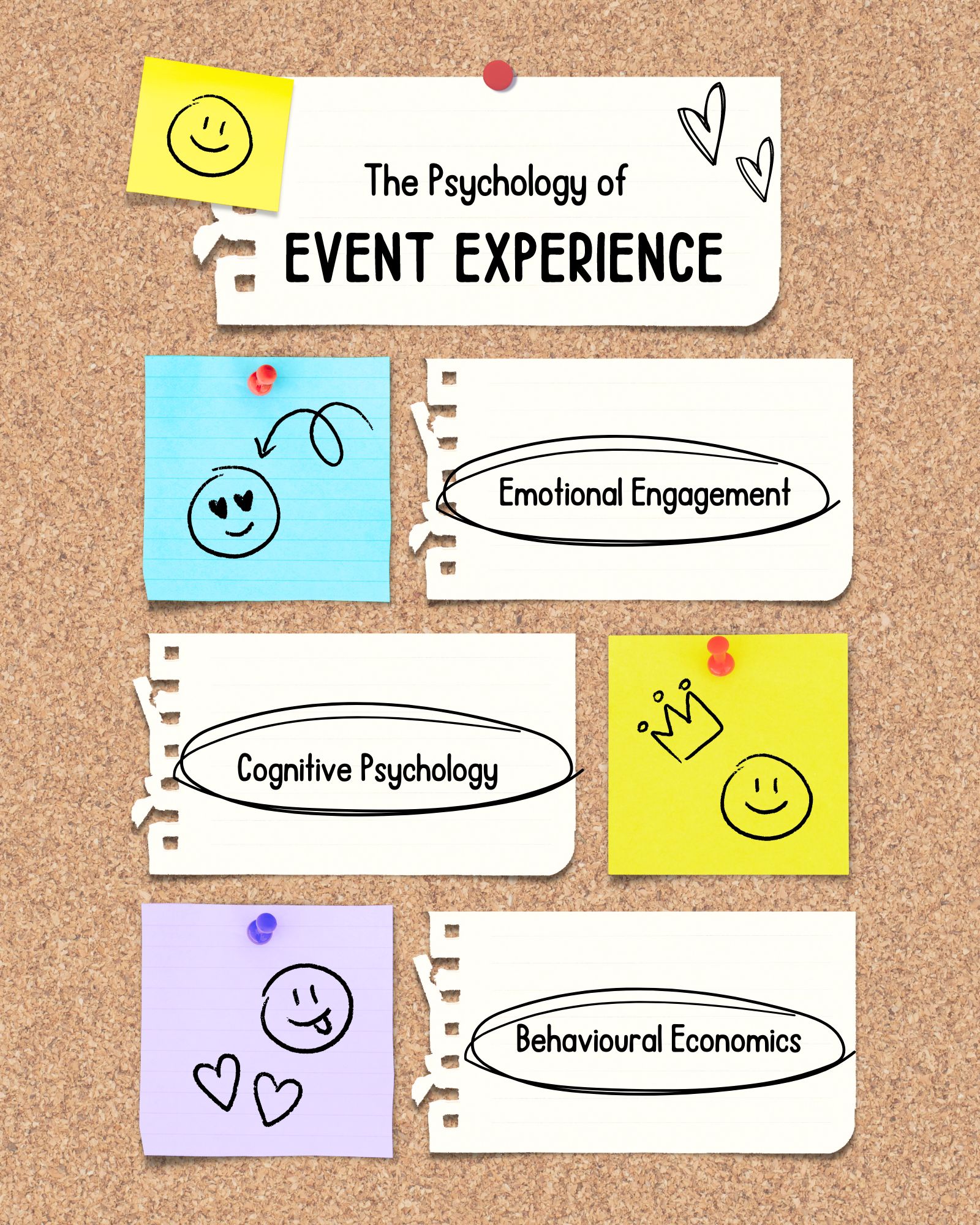
The Serial Position Effect
The Serial Position Effect suggests that people tend to remember the first and last items in a series. Event organisers can use this knowledge to ensure that an event's opening and closing moments are especially memorable. This might involve starting with an attention-grabbing keynote speaker and ending with a powerful closing ceremony.
Emotional Engagement
Emotions play a crucial role in shaping event experiences. Event management protocol can incorporate strategies to elicit specific emotions from attendees. For instance, creating surprise moments, showcasing heartwarming stories, or offering opportunities for self-expression can all evoke powerful emotional responses.
The Peak-End Rule
The Peak-End Rule suggests that people tend to remember the peak emotional moment of an experience and how it ends. Event organisers can apply this principle by designing events that have a standout, emotionally charged moment and a memorable conclusion. This can leave attendees with a positive overall impression.
Behavioural Economics
Behavioural economics explores how people make decisions and choices. Event management protocol can incorporate behavioural economics principles to influence attendee behaviour and decisions during an event.
The Decoy Effect
The Decoy Effect involves presenting an additional, less attractive option to make another option appear more appealing. Event organisers can use this by offering different ticket packages where one option is clearly more attractive than the others, encouraging attendees to choose the desired option.
Understanding the psychology of event experience adds depth to event management protocol, enabling organisers to craft events that profoundly impact attendees.
Virtual and Hybrid Events
The emergence of virtual and hybrid events has revolutionised event management protocol. These formats offer unique opportunities and challenges that organisers must navigate effectively.
Virtual Events
Virtual events have gained prominence, especially in the wake of global events that restricted physical gatherings. Event management protocol for virtual events encompasses various aspects, including:
Engagement Strategies
Keeping virtual attendees engaged is crucial. This involves interactive features like live polls, Q&A sessions, and virtual networking rooms, which event organisers must plan and execute seamlessly.
Technology Infrastructure
Virtual events rely heavily on technology, and having a robust infrastructure is vital. The protocol includes ensuring stable internet connections, choosing reliable virtual event platforms, and providing technical support.
Accessibility
Virtual events can be more accessible to a global audience, but organisers need to consider factors like time zones, language options, and accessibility features for participants with disabilities.
Aspect | Virtual Events | Hybrid Events |
Attendance Reach | Global Audience | Blend of In-Person and Viirtual |
Engagement Opportunities | Virtual Networking, Q&A | In person Networking, VR |
Cost Efficiency | Lower Costs | Moderate Coosts |
Venue Flexibility | No Venue Constraints | Physical Venue Required |
Sustainability | Lower Environment Impact | Reduced Environmental Impact |
Real-World interaction | Limited | In Person Interaction |
Table 2: Difference between virtual and hybrid events
Hybrid Events
Hybrid events combine in-person and virtual components, creating a blended experience. Event management protocol for hybrid events involves:
Synchronisation
Coordinating a hybrid event's in-person and virtual aspects is challenging but essential. This includes synchronising schedules, content delivery, and engagement opportunities for both attendee groups.
Content Adaptation
Organisers must adapt content to suit both in-person and virtual audiences. This may involve offering different sessions or approaches to cater to each group's unique needs.
Engagement Equality
Ensuring that virtual attendees receive the same level of engagement and access to content as in-person attendees is crucial for maintaining inclusivity.
The Future of Event Management Protocol: AI and VR Integration
The future of event management protocol holds exciting possibilities with integrating artificial intelligence (AI) and virtual reality (VR). These technologies promise to transform event planning and execution in remarkable ways.
AI-Powered Personalisation
Artificial intelligence, often called AI, is poised to revolutionise event personalisation. AI can analyse attendee data and preferences to create highly personalised event experiences. For example, AI algorithms can recommend specific sessions, networking opportunities, or exhibitors based on an attendee's interests and past interactions. But it goes beyond just recommendations; AI can dynamically adapt the event experience in real-time based on attendee behaviour.
Imagine an event app that not only suggests sessions but also adjusts the schedule on the fly to cater to individual preferences. If an attendee shows a keen interest in a particular topic or speaker, the AI could rearrange their schedule to prioritise related sessions, ensuring they get the most out of the event.
Chatbots and Virtual Assistants
AI-driven chatbots and virtual assistants are becoming integral to event management protocol. These digital entities provide real-time support to attendees, answering questions, offering directions, and providing information. Their ability to handle routine queries frees up event staff to focus on more complex tasks, improving efficiency.
Moreover, chatbots can be programmed to engage attendees proactively. For instance, they can send reminders for upcoming sessions, provide updates on changes to the event schedule, and even assist with post-event follow-ups, such as gathering feedback or sharing resources. This level of automation enhances attendee satisfaction and engagement throughout the event journey.
VR-Enhanced Immersion
Virtual reality, or VR, introduces an entirely new dimension to event management protocol by creating immersive experiences. VR technology can transport attendees to virtual environments, even in virtual or hybrid events. Event management protocol can incorporate VR to create realistic and engaging experiences that leave a lasting impact.
Virtual Venue Tours
Before an event, attendees can take virtual tours of the venue, getting familiar with the layout and locations of key sessions and amenities. These immersive tours provide a sense of anticipation and orientation, helping attendees feel more comfortable and confident about navigating the physical space during the event. It can also be particularly valuable for virtual attendees, giving them a sense of presence at the venue.
Virtual Networking
One of the challenges of virtual events is recreating the networking opportunities that physical events offer. VR can bridge this gap by facilitating virtual networking sessions where attendees can interact with other participants' avatars. Attendees can engage in conversations, exchange virtual business cards, and even attend virtual meet-and-greet sessions with speakers or sponsors. This fosters connections and recreates the spontaneity and serendipity of in-person networking.
Product Demonstrations
VR can enable attendees to experience product demonstrations in a virtual environment for expos and trade shows. This allows for hands-on exploration without physical presence, making it a valuable addition to hybrid events. Attendees can interact with products, see them in action, and ask questions virtually, providing a unique and immersive product experience.
Incorporating AI and VR into event management protocols represents a paradigm shift in event planning and execution. These technologies empower event organisers to create highly personalised, engaging, and immersive experiences that cater to attendees' evolving expectations. As AI and VR continue to advance, their integration into event management will only become more seamless, making events more captivating and memorable than ever before. The future of event management protocol is not just about planning; it's about creating transformative experiences that profoundly impact attendees.
Conclusion
Event management protocol forms the backbone of successful events, providing a structured framework for planning, coordination, and execution. Event organisers can elevate their events to new heights by embracing advanced techniques and technologies. From seamless operations and effective communication to crisis management and sustainability, advanced events management protocol ensures memorable experiences and satisfied attendees. By staying ahead of the curve and continuously refining their protocols, event professionals can deliver outstanding events that leave a lasting impact. Whether you're planning a corporate conference, a wedding, or a music festival, the principles of event management protocol are essential for success in today's dynamic and competitive event industry.
If you're ready to take your event management skills to the next level and become an industry innovator, enrol in our cutting-edge course, ‘Advanced Event Management.’ This course will empower you with the knowledge and tools to excel in the ever-evolving world of event planning and execution. Join us and be the driving force behind tomorrow's events!









